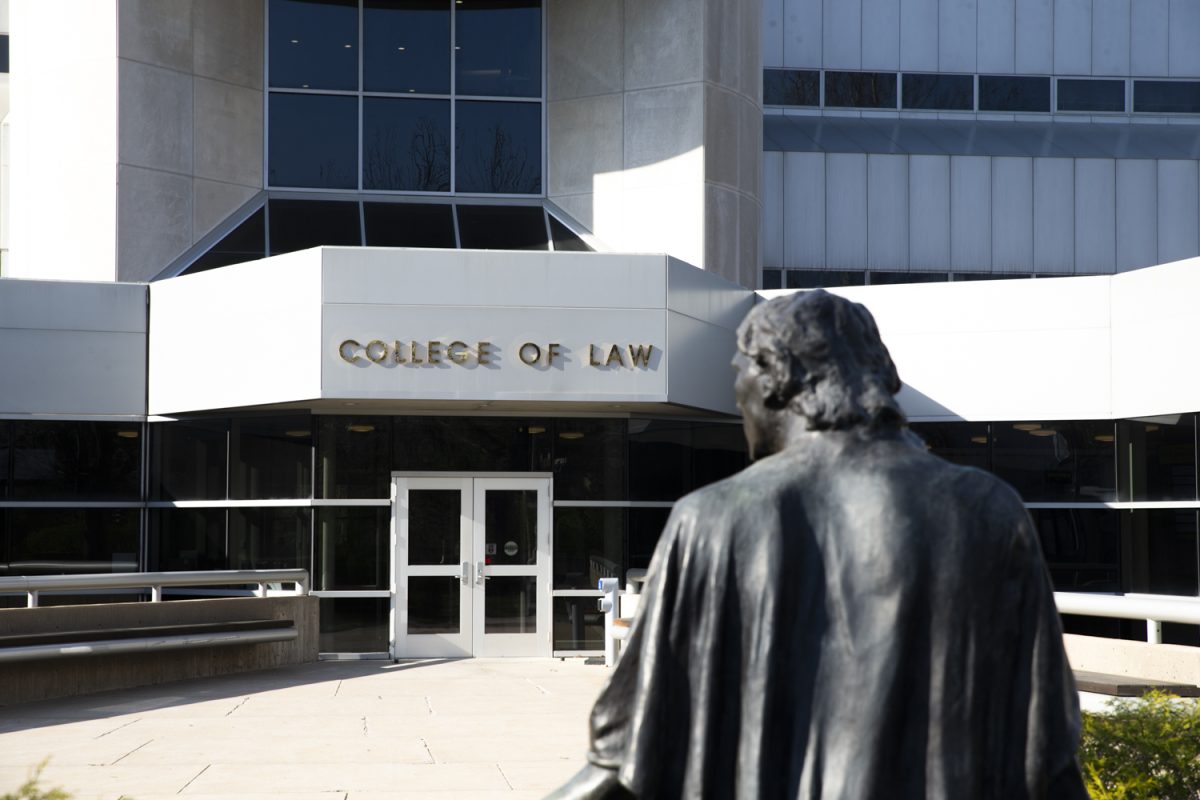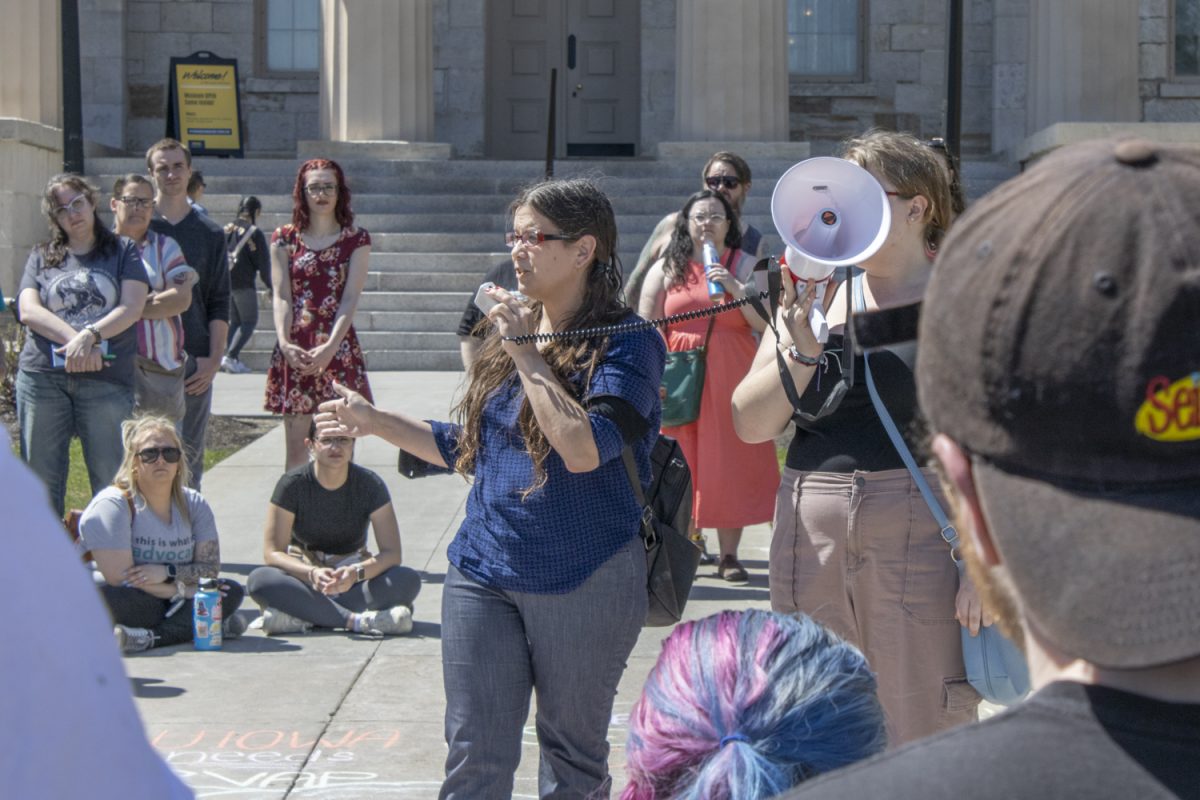Terry Wahls is a walking — and biking — miracle.
Four days a week, Wahls, a 53-year-old UI clinical professor of internal medicine, rides her bike roughly five miles to and from work. Despite her ability to consistently pass this test of endurance, she maneuvers her muscular frame with a slight limp.
That’s because Wahls has multiple sclerosis.
However, Wahls, a soft-spoken, gray-haired, self-proclaimed “farmer’s kid,” has made a remarkable recovery. Through a combination of electrical stimulation, nutrition and exercise, she hardly shows any symptoms of her disease.
“Life is grand,” she said. “I’ve never had so much joy, a sense of purpose, or a desire to give back.”
Professionals involved in the treatment of and research into multiple sclerosis rarely see recoveries similar to Wahls’. In fact, her revolutionary combination of treatments is in the process of national testing. Experts are awed by her recovery, but they remain cautious, because every patient’s case is different.
Multiple sclerosis is a disease that can interrupt nerve impulses to and from the brain, affecting a person’s motor functions.
The onset came quickly. In 2000, not long after Wahls arrived at the UI, she experienced an inability to lift the toes on her left foot. Within two weeks, she was diagnosed with multiple sclerosis.
The physician quickly hit the books, reading as much as she could about the terrifying diagnosis.
“That was very upsetting,” she said. “I chose to be optimistic and tried to go on with my life.”
As her condition gradually worsened, she needed a cane, then a scooter, and eventually a reclined wheelchair.
But she was not thwarted. She researched various elements of the disease and paid specific attention to cell organelles called mitochondria.
Her focus quickly became mitochondrial health. With a few speed bumps, she embarked on a personal research experiment using a number of vitamins and healthy nutrition. She paired these elements with an electrical stimulation program with her physical therapist, Dave Reese, and found a way to stop the disease’s progression.
After three months on this self-designed program, Wahls was able to sit again.
“It was miraculous,” she said. “If that was all I got — that I could sit another year — it felt like a profound gift.”
Not long after, the woman who had been using a reclining wheelchair for two years started to walk.
Among her other conquests are three books, a website, an 18-mile bike tour and, most importantly, studies researching her method of recovery and its effectiveness in others.
Wahls, along with the medical staff who assisted in her recovery, expects her course of treatment will be repeatable.
Reese is a member of that “staff.”
“It’s actually amazing,” he said. “To go from the state she was in to the state she’s in now is unbelievable.”
Reese said this is the first case of its kind he’s seen. Since Wahl’s recovery, he said he’s seeing more multiple sclerosis patients with positive results from similar treatments.
Wahls continues to follow a strict diet and exercises regularly, including her bike rides.
And when it comes to the discussion of her as a medical miracle, she isn’t skeptical.
“A miracle is something wonderful that no one expects,” an emotional Wahls said. “Absolutely, it’s a miracle.”






